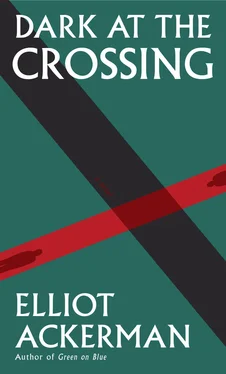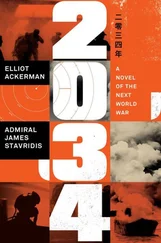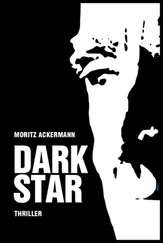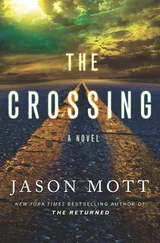Jamil stopped talking about the war.
Hamza sat next to him.
Everyone looked at the fire, unable to look at anything else.
After a while, Jamil muttered: “Is that the lighter you bought from us?”
Haris nodded.
Jamil glanced back, managing to turn away from the warmth. “You paid too much, we owe you for that.”
—
The fire lastedlonger than the rain.
Haris had fallen asleep on the cardboard. When he woke up the following dawn, the shelter was almost empty. Hamza sat by himself, next to the smoldering embers. He poked at the coals with a sapling branch. The leaves on the branch were green and made dirty by the soot.
As Haris sat up, their eyes met.
Out on the road, Haris could hear Jamil’s voice. He was having an argument.
Haris stepped from beneath the tarp. The sky was clear, very sharp and blue. The road was wet and it shone in the sun. Along the yellow-and-white curb, a parked Peugeot coupe flashed its hazard lights. Rinsed by the rain, the black car gleamed. The driver’s door was open. Beneath the traffic light, a man stood with his hands crossed behind his back, clasping a notebook, his hair black and curly, his clear eyes precisely like brown marbles. Clean-shaven, his face glowed in the cold, and Haris could hear what Jamil called him: Amir.
A pair of boys stood next to him. They had been trying to sell their combs, fingernail clippers, and other knickknacks to the drivers who were stopped at the light. They’d taken a break to speak with Amir, but Jamil interrupted: “You can’t have interviews for free.”
“We’ve already discussed this,” Amir told Jamil.
“And you said you would pay.”
“I said I would buy something.” Amir pointed to the plastic shopping bag on the ground.
“Then buy something.” Jamil snatched up the bag and held it in front of Amir, who considered its contents. Nothing seemed of interest.
Haris shuffled down the road, his body stiff after sleeping. The soot of the fire had spread across his clothes. Weakened by hunger, he was tired by even a slow walk.
He approached the traffic light, catching Amir’s eye.
Amir went back to rifling through the shopping bag, removing a small packet of pumpkin seeds. “I’ll take these,” he told Jamil.
Haris sat on the curb among the boys. Amir came over. He crouched in front of Haris, and the boys scuttled away. “You don’t look well,” he said.
Haris stood as if to walk off.
“Come on, sit,” said Amir. He pointed at Haris’s camouflage rain jacket. “You’ve come from the front?”
Every part of Haris wanted to say he had. It would be a small lie. Amir would be more likely to help a down-on-his-luck rebel than an incompetent who couldn’t manage to make his way across the border. Haris could invent a story about his exploits in Aleppo or Azaz. It wouldn’t be hard. But something held him back. He had come here to fight for a cause he thought was honest. Lying would only spoil that.
“No,” said Haris. “I’m trying to cross the border.”
“Your accent, you’re Iraqi?”
Haris didn’t answer but glanced back at Amir, taking the measure of him. Amir spoke Arabic with a lisping accent, one common among well-bred Damascene families or posh businessmen from Aleppo. They appeared to be the same age, but Amir’s helmet of well-combed hair, his blue sweater knit heavy as chain mail, these held him apart from Haris and the surrounding desperation. The cuffs of Amir’s sweater were dirty, his hands were clean, and Haris felt both attracted to and repelled by him.
Amir offered the pumpkin seeds.
“Thank you,” said Haris, taking the packet.
“Where in Iraq are you from?”
“Nasiriya.” He fed himself a fistful of seeds. “But I’m not Iraqi. I’m American.”
Amir became quiet. His eyes canted upward, as if figuring a sum. “What part of America?” he asked, changing to English, which he spoke with a fluid British accent.
“Michigan,” Haris said.
He finished the bag of pumpkin seeds and ran his fingertips along its inside, licking the salt from them. He felt Amir staring.
“So you don’t consider yourself Iraqi?”
Haris didn’t know how to answer. Instead, he told Amir how he’d been robbed crossing the border and his plans to fight with the Free Army. He spoke about the corruption of Assad’s regime, the unity of all Arab peoples, about an Arab’s duty to participate in the revolution.
Amir listened, not saying a word.
A car stopped at the intersection’s red light. The pack of boys charged toward it with their shopping bag. The driver rolled all of his windows up. The boys knocked on the glass, but the driver kept his gaze fixed to the road. Harder and harder the boys knocked, pleading for someone inside to buy something. They began to shake the car. Then, while the light was still red, it sped through the intersection, its side mirror clipping one of the boys. He yelped, running toward the curb, clutching his elbow.
Jamil picked up the shopping bag. He hurled a tin of shoe polish followed by a roll of breath mints at the car. The junk fell harmlessly. Jamil plodded up the road, placing what he’d thrown back in the bag.
Amir stood from the curb, looking down at Haris. “I’ve never been much of a fighter, though I was an activist in the revolution’s early days, during the protests…” Amir’s voice trailed off. He glanced at Jamil, who crouched on the roadside, examining the hurt boy’s elbow. “The research firm I work with does humanitarian assessments for governments and aid organizations. They pay well and could always use an American who speaks Arabic. If you ever need a job, look me up in Antep.” Amir jotted his email address on a scrap of paper, handing it to Haris. “Good luck crossing the border.”
He walked off to complete his interviews.
Haris took out his phone to save Amir’s information. He had a new email:
The following account has been temporarily disabled — saladin1984@gmail.com
Frantically, he wrote a response. He sent it, waited a few seconds, then it came back the same way. He sent another, then another. They all came back the same.
Haris’s stomach twisted, fear mixing with hunger. The pumpkin seeds had only reminded him how starved he was, that he had no idea how to survive on the border, let alone find money for another fixer to take him across.
Amir crouched next to some of the boys, scribbling in his notebook. This must be an easy way to pass the war, Haris thought. Take a few notes, write a few reports — get paid. When the war finished, Amir could say he had been involved, that he had helped. Yes, thought Haris, an easy way to pass the war.
Another low rumble came from the south, near Azaz. Smoke tumbled across the distant horizon. The rumble became a roar. The smoke thickened. A pair of armored police cars, painted blue, sped down the D850. They ran the red light where Amir interviewed the boys. Anticipating more refugees, the Turkish authorities would reinforce the border.
Amir walked briskly toward his black Peugeot. One by one, the boys either sat along the curb or returned to their shelter of plastic tarps. The gendarmes would shut most of the roads until this spate of fighting passed. No cars would travel by the intersection until then. The boys had no choice but to wait it out.
Haris rushed up to Amir. “There’s work in Antep?” he asked.
Bent over the steering wheel, Amir locked his notebook in the glove box. He glanced back at Haris, nodding toward the passenger seat.
Haris ran around the car, quickly climbing in. To leave these boys who had no option but to stay shamed him, so he fixed his eyes on the road. Amir dropped the Peugeot into gear, making a three-point turn. Before they could drive back up the D850, Jamil hurried over. Amir rolled down his window.
Читать дальше












